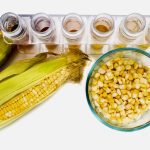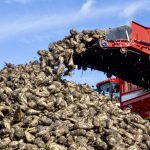Tag Archives genetically modified crops

Transgenic corn touted for dairy feed efficiency
Originally developed for the U.S. ethanol industry, Syngenta’s Enogen could benefit dairy producers

Health Canada clarifies rules for gene edited crops
Regulations for traditionally bred crop varieties apply

Will war open Europe to biotechnology?
Severe supply disruptions have prompted some member states to consider wider acceptance of GM crops
China to allow gene-edited crops

China proposes new rules to ease GMO approvals
Leadership seeks 'turnaround' in seed sector

Is the transgenic era over?
New genetic technologies, especially editing, could make genetic modification a rarely used tool

Genetically modified alfalfas find their place
Feed quality, harvest window and seed establishment are benefits

Biotech crops still a sticking point in U.S.-China trade deal
The issue is one of a number of complaints the U.S. administration has raised

Canada joins group supporting gene editing
Twelve countries issued a joint statement in support of the plant breeding process

Dicamba drift problems continue in farm states
Fewer instances of dicamba drift onto non-target crops are being reported this year in the United States, but it continues to divide agriculture community
